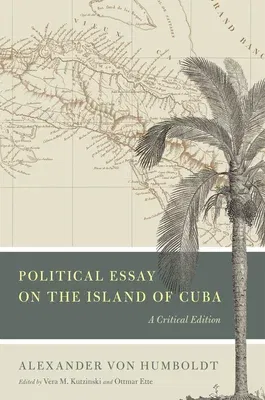Alexander Von Humboldt
(Author)Political Essay on the Island of Cuba: A Critical EditionHardcover, 15 May 2011

Qty
1
Turbo
Ships in 2 - 3 days
In Stock
Free Delivery
Cash on Delivery
15 Days
Free Returns
Secure Checkout

Part of Series
Alexander Von Humboldt in English
Print Length
496 pages
Language
English
Publisher
University of Chicago Press
Date Published
15 May 2011
ISBN-10
0226465675
ISBN-13
9780226465678
Description
Product Details
Author:
Book Format:
Hardcover
Country of Origin:
US
Date Published:
15 May 2011
Dimensions:
23.11 x
15.49 x
3.81 cm
ISBN-10:
0226465675
ISBN-13:
9780226465678
Language:
English
Location:
Chicago, IL
Pages:
496
Publisher:
Weight:
861.82 gm